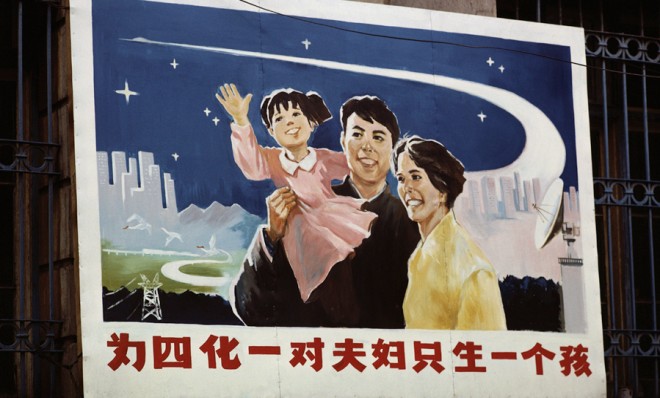The newest Chinese luxury item: American surrogate mothers
Behold the designer baby — who comes with U.S. citizenship to boot

A free daily email with the biggest news stories of the day – and the best features from TheWeek.com
You are now subscribed
Your newsletter sign-up was successful
A new American product may be on the verge of surpassing Calvin Klein jeans and Prada handbags as the Chinese elite's favorite luxury item: Surrogate mothers.
While Thailand, India, and Ukraine are also known as popular surrogate sources, a growing number of wealthy Chinese have been turning to American women to serve as surrogates, writes Alexandra Harney at Reuters. And they are paying top dollar, starting at around 120,000 of them to be exact.
China is fuzzy on the permissibility of surrogacy. Though it has been explicitly prohibited since 2001, overseas surrogacy is not technically illegal. Moreover, the wealthy have found a way to circumvent the law (much as they have China's one-child policy), creating a surrogacy black market. Xuyang Jingjing writes at Global Times that "with connections and backdoor deals, couples are sometimes able to find a surrogate mother and a hospital willing to take the risk."
The Week
Escape your echo chamber. Get the facts behind the news, plus analysis from multiple perspectives.

Sign up for The Week's Free Newsletters
From our morning news briefing to a weekly Good News Newsletter, get the best of The Week delivered directly to your inbox.
From our morning news briefing to a weekly Good News Newsletter, get the best of The Week delivered directly to your inbox.
Most famously, in 2011, one wealthy Chinese couple was discovered to have spent one million yuan (approximately $157,000) on two surrogate mothers, resulting in eight babies.
However, some Chinese couples are uncomfortable with the shady process of surrogacy in China and prefer the openness and professionalism of the U.S. surrogacy industry. And while a full surrogacy package may cost more in America, it comes with some critical benefits — namely a potential green card, which explains why surrogacy has become so popular even with fertile couples.
Under the 14th Amendment to the U.S. Constitution, anyone born in the country has a right to citizenship, and once a citizen turns 21 years old, he can apply for green cards for his parents. For this reason, "birth tourism" has brought some Chinese women to the United States, especially Southern California, to deliver and gain instant U.S. citizenship for their babies. Though the $25,000 Chinese agencies typically charge to arrange these deliveries is a far cry from the cost of U.S. surrogacy, they are still usually reserved for the super wealthy.
Yet even the high price of American surrogacy pays for itself when you consider it can cost less than applying for an EB-5 visa, which necessitates a minimum investment of $500,000 in a job-creating business. In fact, one Shanghai-based agency that charges close to triple the typical U.S. surrogacy fee uses the lure of the American dream as part of its marketing. "If you add in plane tickets and other expenses, for only $300,000, you get two children and the entire family can immigrate to the U.S.," an agent tells Reuters.
A free daily email with the biggest news stories of the day – and the best features from TheWeek.com
Furthermore, some choose American surrogates because they want the opportunity to create "designer babies." Some want "ethnically Chinese or Asian egg donors, commonly with Ivy League degrees," says Harney. Others desire "tall, blond donors," according to Jennifer Garcia of Extraordinary Conceptions, a California surrogacy agency. "Clients believe these taller, biracial children will be smarter and better looking," writes Harney.
It can be just as easy to request a boy or girl (though boys are far more popular), so the possibilities with American surrogacy are endless. That is, if you can afford it.
Emily Shire is chief researcher for The Week magazine. She has written about pop culture, religion, and women and gender issues at publications including Slate, The Forward, and Jewcy.
-
 The environmental cost of GLP-1s
The environmental cost of GLP-1sThe explainer Producing the drugs is a dirty process
-
 Greenland’s capital becomes ground zero for the country’s diplomatic straits
Greenland’s capital becomes ground zero for the country’s diplomatic straitsIN THE SPOTLIGHT A flurry of new consular activity in Nuuk shows how important Greenland has become to Europeans’ anxiety about American imperialism
-
 ‘This is something that happens all too often’
‘This is something that happens all too often’Instant Opinion Opinion, comment and editorials of the day